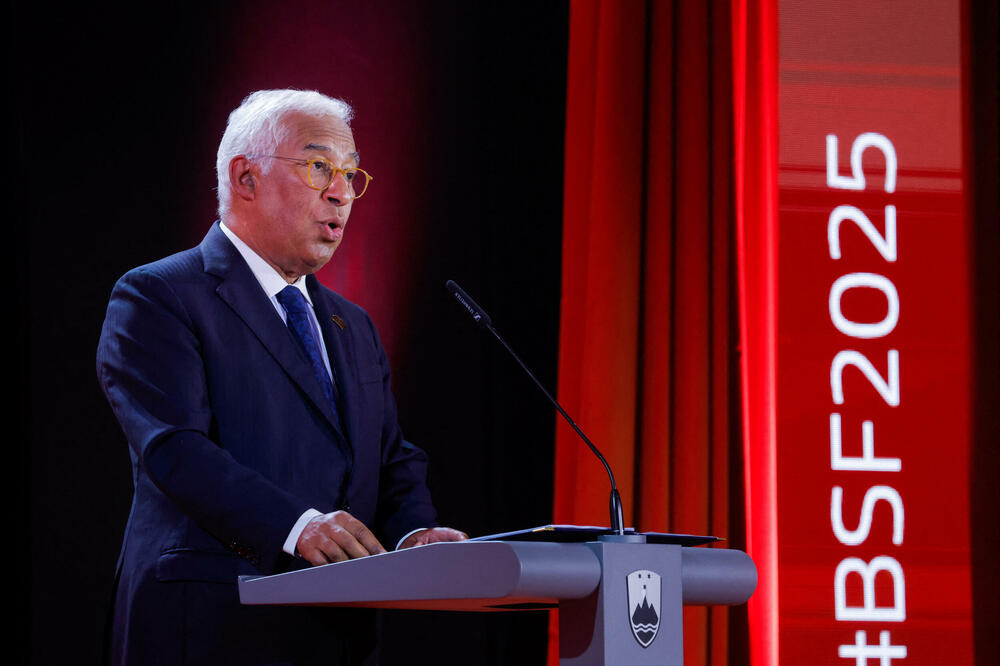European Council President António Costa said on Tuesday that expanding the European Union to include Ukraine, Moldova and the Western Balkans is one of the bloc’s most urgent strategic priorities, arguing that enlargement is essential to Europe’s security, global influence and long-term stability.
Speaking at the EU Enlargement Forum, Costa said the geopolitical environment — shaped by Russia’s war in Ukraine, growing Chinese and Russian influence, and wider instability — made a stronger and larger EU indispensable.
“In today’s multipolar world, only a stronger and united European Union is prepared to defend its interests and values,” he said, adding that the next wave of enlargement was “the best investment we can make for Europe’s future.”
Costa said the process has moved faster than at any time in the past 15 years. The European Commission’s latest report, he noted, marked the first time since 2010–2014 that enlargement was considered a realistic short-term prospect. “Ukraine, Moldova and the Western Balkan countries belong in the European Union,” he said.
Progress and timelines
Costa highlighted what he called substantial progress in 2025.
Montenegro had advanced the most and, if reforms continue, could close accession talks by 2026. “Montenegro can be the ‘28 at 28’,” he said.
Albania had accelerated efforts and could close negotiations by the end of 2027.
Ukraine and Moldova, despite war and political pressure, completed EU acquis screening in a year — “at record speed”.
Serbia had pledged new reforms in media policy, energy and EU foreign-policy alignment.
Bosnia and Herzegovina and North Macedonia could still move forward this year.
Kosovo, three years after applying for membership, “should get a positive signal.”
Costa warned against ignoring the “political and geostrategic imperative” of expansion, stressing that alignment with EU foreign and security policy was crucial, particularly given Russia’s aggression.
Economic impact and incentives
He pointed to new Growth Plans for the Western Balkans and Moldova, worth up to €8 billion, which are already reducing border delays, improving digital networks and integrating the region into EU payment systems. Ukraine and Moldova will join the EU free-roaming zone in January 2026.
Costa said the last 20 years of enlargement had added more than 100 million people to the Union and boosted its economy by over €2 trillion. Member states that joined after 2004 have more than doubled their GDPs, creating 26 million jobs — including 6 million in the new member states.
Reforms: in candidates and inside the EU
Costa said making enlargement a reality required parallel reforms:
1. Candidates must meet EU standards on democracy, rule of law and fundamental rights. The accession process must remain strictly merit-based and free of political blockages by individual member states.
2. The EU must ready itself for new members by addressing internal reforms, including its budget framework and decision-making capacity.
The Granada Declaration, he said, underlined the need for institutional changes to ensure enlargement does not weaken the Union’s functioning. Accession treaties should also include stronger safeguards against democratic backsliding.
Costa called for improved communication to explain the benefits and challenges of enlargement to both EU and candidate-country citizens, warning that public support was essential.
A strategic choice
“Our predecessors built the Union through brave political decisions,” he said. “Today we must show the same vision.” Candidate countries, he argued, must decide whether they want to continue their European transformation or remain constrained by historic divisions.
Europe, he said, “must not become a museum of past prosperity.” Enlargement, he insisted, is the path to ensuring the EU remains a global force for peace, stability and economic strength.
“We must continue to work together as partners, building a Europe that is secure, prosperous and united,” he said.



